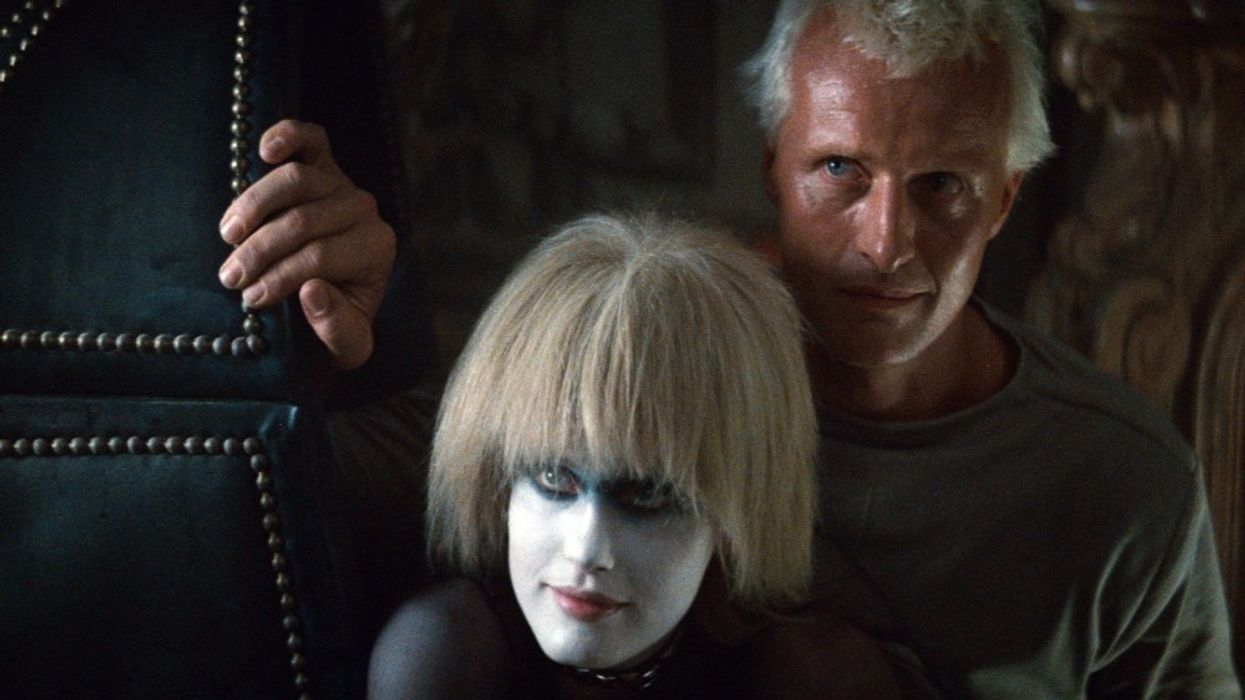Watch: A Novel Way to Make Your Characters More Human
Stanley Kubrick and Ridley Scott are among the filmmakers who use this tactic.

One of the most basic questions faced by any filmmaker must be this: what is the universal human angle here? How do I bring out the human element in these characters and this story, making the film matter to its viewers? There are many paths to that answer, the most obvious being making the story as engaging as possible, using human interest as story elements where possible, or adding as many dimensions to characters as they can hold. However, some directors, ranging from Stanley Kubrick to Ridley Scott to Spike Jonze, have amplified the humanity of their characters by contrast, specifically by including nonhuman, non-animal characters in their films to remind us of what makes a human a human and what makes a robot a robot.
In the most outlandish films, we may notice the least outlandish details first.
Luis Azevedo's new video essay for Little White Lies takes a look at some of these films and underscores their revelatory technique. Studying these filmmakers' works can teach some things about how to make more "relatable" films. Check out the video and our top takeaways, below.
Science fiction can highlight everyday life
It's a curious truth that in the most outlandish films, we may notice the least outlandish details first. In Blade Runner, for instance, the replicants and the floating cars are exciting, of course, but what sticks in the memory are the smaller things: Rain. The look and feel of a small take-out restaurant. The blood on a woman's body when she crashes through plate glass. And beyond that, there are the big, intangible things: Deckard's pain and passion. The coldness of whoever or whatever is ruling the society in which the film takes place. And all of this in a film in which humanoids are central characters, and are, in fact, the crux of the story. It could be their presence in the film makes us pay more attention to everything else in the film.
Fantasy is always based on core truths
In a movie like AI, what is significant is not so much how far Steven Spielberg's imagination can go, but at what points his imagination bumps up against reality. In a crucial scene, included in Azevedo's piece, the robot David has a conversation with real boy Henry in which we are reminded that, because David is a machine, his answer to the common question, "When's your birthday?" must be that he has no birthday. He was never born, and he will never die, at least not in the way other people die. This also means that while he may have a memory, he, like the replicants in Blade Runner and the resident robot Michael in Ridley Scott's most recent Alien films, does not have a memory like a human's; nothing will be prioritized, shifted, or forgotten, but instead will be categorized in a mechanistic and distinctly inhuman manner. Most importantly, the only reason we consider any of these factors, in relation to any of these films, is that there is a central character who, by the mere fact of his or her existence, poses a thorny and yet essential question: what is humanity?
Humanity is the ultimate theme
Although it could easily be said that there are only a few subjects that people tell stories about over and over again, it could almost just as easily be said that a film's main theme is its human core. In AI, the core themes are really loneliness, alienation, assimilation, and love, and the storyline points itself, ultimately, in those directions (by however circuitous a route). In Blade Runner, the core human story is the clash between romantic passion and civil responsibility, however many explosions may surround that story. In the Alien series, the story increasingly becomes an exploration of where we humans have come from, dripping-slimy-monster-jaws aside.
What do you consider to be the core human story at the heart of your favorite science fiction film? Let us know in the comments.











